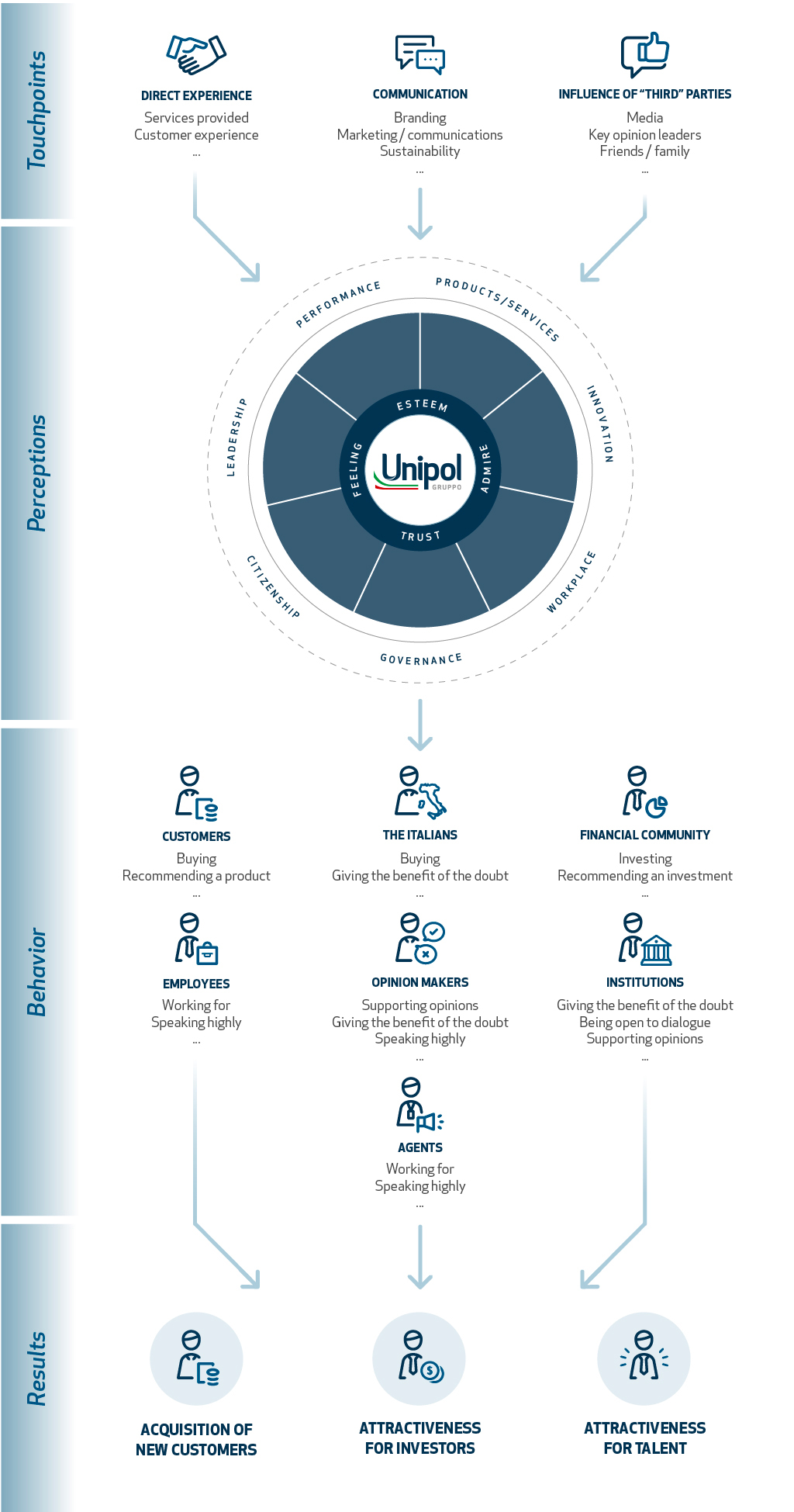Engagement venues
The stakeholders’ perceptions and expectations with regard to the Unipol Group are formed at three main touch points:
- direct experience (by using the services, talking with employees of the Unipol Group, contacting Customer Service, participating in events organized by the Company, etc.)
- what the Unipol Group says about itself (through external communication, advertising, communication on digital channels, internal communication, etc.)
- what others say about the Unipol Group (media, social channels, opinion leaders, friends and relatives, etc.)

Enabling a comprehensive engagement system means keeping constantly monitored the balance between the promise being made and the market’s expectations.
The goal is to keep under control the dynamics of the key stakeholders’ expectations with respect to the promises that the Company wishes to make, and is capable of making (positioning), on the one hand, and catching any warning signs for our reputational capital, on the other. A customized KPI dashboard helps us to measure progress and oversee critical areas.
It is essential to enable a continuous stakeholder engagement system that allows the Company to promptly understand whether it is tuned to their needs, because the creation of reputational value will only depend on its ability to produce an experience equal to, or greater than, expectations.
Our continuous stakeholder feedback system uses the following instruments:
- Monthly survey of the General Public
- Annual survey of Unipol Group corporate staff
- Annual survey of Customers and Agents
- Annual survey of Key Opinion Leaders (opinion makers, financial community, institutions)
It is equally important to constantly monitor the kind of narrative that traditional media and social media transmit to the public opinion: what are the issues on which they focus and with what prevailing sentiment. We need to understand what kind of story the media tend to tell about the Unipol Group because, in their mediating role, they influence the perception of the Company as it is and the formation of expectations for the future.
The filter with which we read the points of view reported by the media is the Unipol reputational scorecard which defines the Company profile that we wish to be: the positive / neutral / negative evaluation reflects the degree of alignment between media representation and the corporate story that we have set as a goal for ourselves.
Monitoring market dynamics,new offering paradigms, new potential players and changes in society makes it possible to predict the emergence of new expectations in key stakeholders and give the company the time required to arrange for a response system (Reputational & Emerging Risk Observatory).
The central point of this complex guidance system is the Group’s identity system, made up of visions to strive for, commitments for the present, guiding values and behavioral codes that must support and enable a promise in line with the expectations of the key stakeholders.


